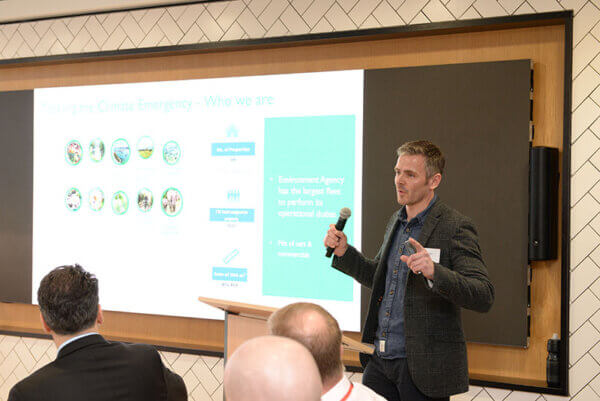Mitie names as supplier for new NHS SBS sustainability framework
- Mitie has been appointed to the new NHS Shared Business Services (NHS SBS) Sustainable Transport and Infrastructure framework agreement
- Covering two lots, Mitie will be able to deliver sustainable transport consultancy and charging infrastructure installation services to a range of public sector organisations
- The appointment is underscored by Mitie’s strong EV credentials, boasting one of the largest electric fleets in the UK
Mitie has been named as a supplier on the NHS Shared Business Services (NHS SBS) Sustainable Transport and Infrastructure framework agreement. Being on the framework will enable Mitie to bid for contracts and projects delivering the consultancy, planning, and installation of sustainable transport infrastructure such as electric vehicle (EV) charging for the NHS and other public sector organisations across the UK.
Mitie’s inclusion on the framework agreement covers two vital areas: sustainable transport consultancy and infrastructure installation. As a designated consultancy supplier on the framework, Mitie will be able to develop tailored transport decarbonisation strategies for customers, providing its expertise to ensure EV transitions and charge point rollouts are aligned with the customer’s wider sustainability goals. As an infrastructure supplier, Mitie will also be available to deliver the technical design, installation, and maintenance of EV charge points at public sector sites, which will include hospitals and GP surgeries.
Ensuring there are sufficient EV charging networks across the NHS estate is an important component of the organisation’s ambitious target of reaching net zero for its own emissions by 2040. By expanding the UK’s charge point network, the NHS can also contribute to improving local air quality by helping more people make the switch to EVs. As a close partner to the NHS, Mitie, through its appointment to this framework agreement, will be well positioned to expand on its services to existing NHS customers, offering a full suite of end-to-end EV solutions that support decarbonisation goals.
Mitie will not be limited to only providing these services for NHS organisations, with NHS SBS’s procurement framework also extending to a wide range of public sector organisations, such as councils, schools, police forces, and national parks.
Mitie boasts one of the largest electric fleets in the UK, and has built on this success by using its expertise to support many of its customers with their own fleet decarbonisation journeys. This includes the creation and delivery of EV transition plans, as well as the installation and upkeep of EV charging infrastructure. This involves ensuring customers have sufficient power to support their EV charging needs, including supporting grid upgrades where needed through Mitie’s specialist business, Rock Power Connections. To date, Mitie has installed more than 2,700 EV charge points across its colleagues’ homes and customer sites.
Pradyumna Pandit, Managing Director, Sustainability and Energy Services, Mitie said:
“Our inclusion on this framework agreement is testament to our strong electric vehicle credentials and proven commitment to driving decarbonisation for public sector organisations across the UK. With our specialist expertise in delivering comprehensive EV solutions, we’re well equipped to support the NHS, and a wide range of other public sector organisations on their green transitions.”
Anjub Ali, Senior Construction Specialist, NHS SBS, said:
“The NHS has set out ambitious goals en route to Net Zero 2040. Our framework agreement provides all NHS organisations with a convenient and compliant way of purchasing a wide range of sustainable transport services and infrastructure to help it get there.
“We have worked with NHS Sustainability, Estates and Procurement colleagues in designing this framework, and aligned it to fulfil the common themes which have emerged from NHS Trusts’ Green Travel plans, so it includes a range of suppliers providing transport and infrastructure-related services to support the NHS on its journey.”
Read next
Mitie acquires Cliniiwaste, a sustainable healthcare waste company
Mitie has acquired Cliniwaste, which specialises in treating plastic waste generated by the NHS and pharmaceutical manufacturers, turning it in to a reusable resource. This acquisition is part of Mitie’s strategy of providing sustainable…

Meeting the challenges of electrifying your vehicle fleet
With only 3% of vehicles in the UK being plug-in, we really need to pick up the pace if we’re to meet the UK government’s target of zero emissions on all vehicles by the…
Mitie appointed to NHS London Procurement Partnership FM Framework
Mitie has been named as a supplier on NHS London Procurement Partnership’s Total Facilities Management Framework. The new agreement will enable Mitie to bid for contracts which support all authorities through the provision of…